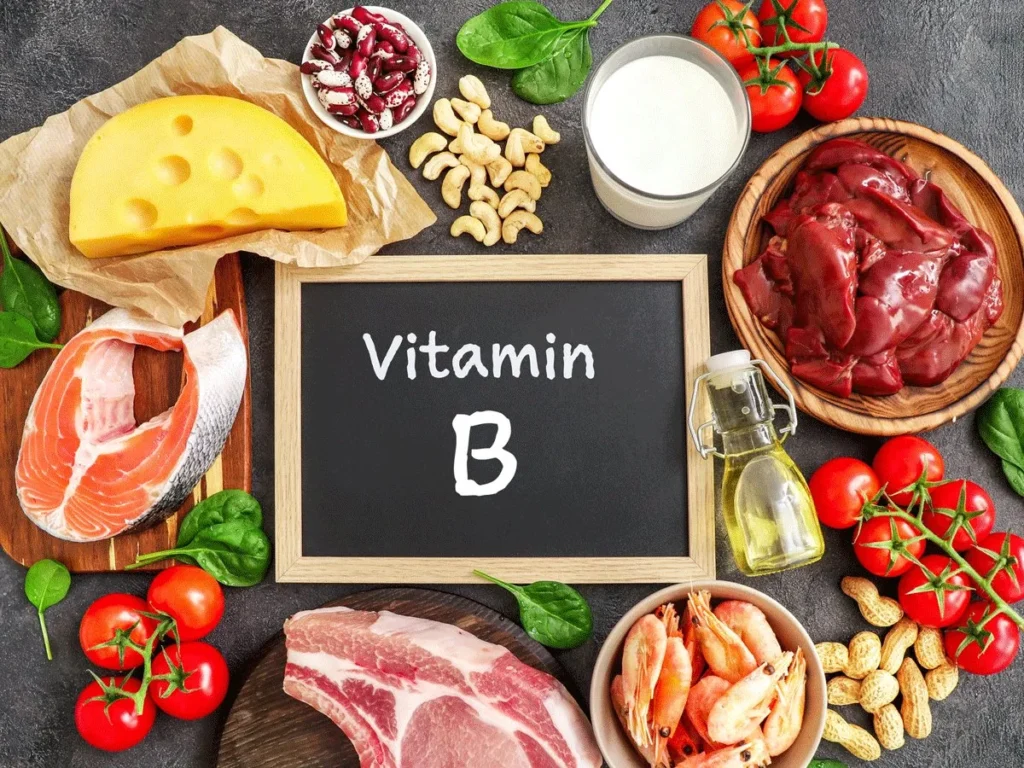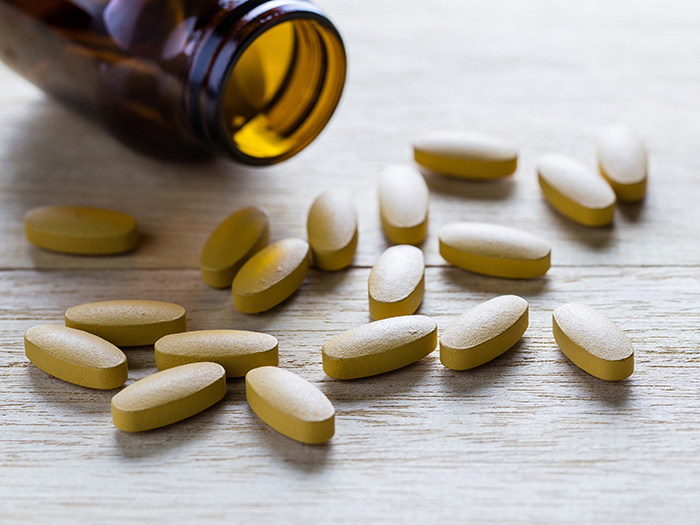
How Do I Boost My Energy Naturally: Feeling Fatigued & Exhausted All The Time
With the pace of most people’s day-to-day lives, many are searching for ways to maintain their energy and to boost their energy levels naturally.
Pressure to achieve at work and in one’s personal lives means that people have so much to do every day nowadays. It is also easy to underestimate tasks and this can leave you feeling, tired and exhausted all the time.
Boosting low energy is essential to managing your day-to-day tasks and ensures that you also feel revitalised every day. Allowing you to enjoy your life.
Managing fatigue and boosting your energy can help you see better results in the gym, at work and in your personal life. It can help you go the extra mile in your relationships too.
Many people turn straight to quick fixes like coffee to boost low energy levels and prevent fatigue. While this does help, it might not be the best long-term solution. We will cover why this is later.
Feelings of tiredness, fatigue and exhaustion, especially if it is all the time, usually indicate a whole-body issue that needs to be addressed.
How Do I Boost My Energy Levels naturally
There are several reasons why you may be feeling tired and fatigued all the time, but the solutions are generally quite straightforward. Whether that is a lack of certain vitamins, other essential nutrients or restful sleep.
Most people are not getting enough nutrients to support their day-to-day functions and this dangerous imbalance can lead to burn out or fatigue later on.
While always sensible to contact a healthcare professional in serious cases of fatigue, as there could be another underlying issue, there is no harm in exploring ways to improve and boost your energy naturally.
Boosting energy levels affects many different processes in your body. It also helps to maintain your mood. Let’s cover some of the best ways to get an energy boost naturally to prevent you feeling exhausted all the time.
How Do I Boost My Energy: Energy Boosting Vitamins
B-Complex Vitamins
All of the B complex vitamins are essential to normal energy production. They play key roles in respiration where energy is formed from glucose or other input molecules.
Certain foods, drinks or supplements that are high in some of the key B complex vitamins such as B1, B3, B6 and B12 can boost energy levels and protect against fatigue.
Supplementing with high doses of vitamin B1, Thiamine, and vitamin B2, riboflavin, helped to reduce key markers of physical fatigue.
Many of the B complex vitamins are essential cofactors for the energy production cycle. Your energy production and boosting capacity can be severely limited without these essential vitamins.
Deficiencies in the key B vitamins lead to mental fatigue, severely reduced memory and brain functioning.
Vitamin B3 (Niacin) is one of the most highly conserved vitamins in higher organisms. One of the reasons we eat mushrooms is because of their B vitamin content.

Vitamin B12
Your intestinal bacteria also produce vitamin B3 and other B vitamins. We have a symbiotic relationship with many difference microbes in our gut and they can boost energy production from fermentation of foods that we eat.
This is why it is important to look after your gut health, as quite often you gut bacteria are performing duties that are essential for your health that you can’t see.
Microbes help with your vitamin B12 intake in the gut, as it is one of the most difficult vitamins to obtain from your diet. It is also essential to healthy red blood cell and energy production. Folic acid or folate, Vitamin B9, is essential for healthy red blood cell formation and energy production alongside vitamin B12.
B12 is quite interesting, in that the mouth is sensitive to it, being permeable through the underside of the tongue in high quantities. You can supplement for vitamin B12 and quite often B12 deficiency is a cause of fatigue and tiredness. There aren’t actually that many gut bacteria that can make B12, which is also why healthy gut bacteria are so important.
Because of the amounts of pesticides in our foods there are less healthy bacteria in our guts. This can reduce vitamin B12 levels so it is important to make sure you eat fresh foods to have optimum levels of B12.
B complex vitamins on the whole are absolutely vital for optimum energy levels and reducing fatigue.
To obtain adequate amounts of B complex vitamins you must consume different foods including red meats, yoghurt which specifically contains high levels of B12, fish, leafy greens and eggs.
Because of this B complex vitamin supplements are very popular.
Vitamin C
The relationship between vitamin C and energy production is not really discussed. However, vitamin C has a direct impact on levels of iron in the blood.
Iron affects oxygen intake and energy production. Taking vitamin C can help to boost energy production through this increase in iron uptake.
In the most serious cases of vitamin C deficiency, you can develop scurvy. The symptoms of this include fatigue and muscle pains.
Supplementing with vitamin C has been found to significantly improve symptoms of fatigue.
You can find vitamin C in pretty much any bright coloured fruit. The brighter coloured the better and there is reason for that.
Bright coloured fruits are ripe, ready to eat and also contain the most vitamin C.
We have built a symbiotic relationship through eating fruits that have high amounts of vitamin C. They provide vitamin C we ensure their continued existence and grow more of them.

Energy Boosting Minerals, Herbs and Compounds
Caffeine
We previously spoke about caffeine in relation to fatigue and boosting energy levels. Caffeine can be useful to combat fatigue and tiredness as a temporary measure but its effects do wear off.
Also, caffeine is not really tackling one of the causes of fatigue, it is just masking symptoms of tiredness. While caffeine has been shown to boost workout productivity it is masking the effects of tiredness.
Caffeine inhibits the feeling of tiredness through certain receptors in the brain.
While caffeine could be quite useful, it is not the best way to boost your feelings of energy or boosting energy levels.
You can also get adrenal fatigue from caffeine use and this can contribute to feelings of exhaustion in the long term.
Caffeine also slightly elevates cortisol and oestrogen levels in the short term. Higher oestrogen levels acutely reduce overall energy requirements.
You can find caffeine in a strong coffee, tea or green tea. I would not recommend drinking tea or coffee after 12 noon as you won’t be able to sleep properly.
Polyphenols
Compounds known as polyphenols stimulate the movement of oxygen into the brain. They are found in green teas and dark chocolate.
Polyphenols help to improve energy production in the brain, which uses most of your body’s energy reserves. They can therefore help you to feel less tired and more energised.

Iron
One crucial mineral to optimum energy levels is iron. We’ve spoken about iron before, but it’s important to state the importance of iron in terms of fatigue and boosting energy levels.
Iron is important because of haemoglobin. Red blood cells, containing haemoglobin, carry oxygen to the brain and muscles. The oxygen then takes part in energy making from sugar and other molecules that you eat.
Restricted oxygen supply to the brain impairs your brain functioning and causes fatigue. After heavy brain use your bodies glucose and oxygen levels decrease massively and this leads to mental fatigue and tiredness.
Your oxygen carrying red blood cells are made of haemoglobin. Naturally iron and supplementing with iron can reduce feelings of fatigue, allowing the body to feel revitalised.
It’s not just the reduced oxygen levels that can cause fatigue but also decreased activity of enzymes that contain iron.
When iron levels are dramatically reduced, this is classed as a medical condition known as anaemia.
Supplementing with iron has been shown to increase work capacity an take home pay range from up to 30% of previous levels.
Copper
Copper is linked with iron for improving and boosting energy levels.
Found in high amounts in nuts, copper is crucial for red blood cell formation. Copper is very much overlooked when managing fatigue and low energy levels.
Copper is a rate limiter on making red blood cells.

Magnesium
Magnesium is another mineral that is overlooked when one thing to boost energy levels and reduce fatigue but it is quite important.
With a magnesium deficiency you may experience fatigue, staggering and lethargy.
We have covered magnesium previously and it is very crucial for normal functioning of the muscles.
Magnesium may make muscle respiration more efficient and increases glucose availability in the brain. This is how it is thought to reduce fatigue.
Supplementing with magnesium has been shown to reduce perceived fatigue from exercise and illness in various studies.
Chromium
Chromium is essential to the healthy processing of natural sugar in the body for energy production. It has been linked to healthy ATP production. So, this is another mineral that is vital for energy boosting and combating tiredness.
Eating healthy sugars is important to maintaining energy levels throughout the day.
Of course, too much sugar can lead to other health issues such as diabetes, cardiovascular disease and weight gain. This is to be avoided.
People try to avoid eating sugar through choosing diet forms of certain brands. Often these contain high levels of sugar mimicking sweeteners.
This could actually be worse than eating sugar, as often they are unnatural to the body and your cells don’t really know how to process these.
Some sweeteners are up to 1000 times sweeter than sugar and can lead to insulin hormone disruption. This is one of the leading causes of diabetes. This can also be a cause of feeling fatigued all the time.
You can find chromium in pepper spice, seafood or meats.
Electrolytes: Chloride & Iodide
Many of the minerals we’ve mentioned here are known as electrolytes. With excessive exercise many of these electrolytes are lost through sweating. Maintaining electrolyte balance is essential for the proper functioning of your body and muscles.
Sometimes muscle fatigue can result from electrolyte imbalances or deficiencies in certain minerals. This can include electrolytes such as chloride or iodide that are essential to normal metabolism.
These electrolytes also have partners, for iodide this is usually selenium and this found in high amounts in soil growing vegetation. Selenium is also very important for maintaining normal energy levels and protecting the thyroid gland.
You can obtain necessary amounts of these sorts of electrolytes from fish and they are important to maintaining normal energy levels.

Ginseng
We previously covered ginseng as a stress relieving adaptogen.
There are various types of ginseng and Panax ginseng in particular has been studied in relation to energy and quality of life. Ginseng is often used to boost and maintain natural energy levels.
Studies on animals and human use has shown that Panax ginseng and other varieties improve energy utilisation and reduce fatigue.
Ginseng is thought to boost energy levels through protecting the mitochondria.
Rhodiola
We also discussed Rhodiola rosea, a plant used to relieve exhaustion and stress.
Rhodiola is used in natural medicine because of its potential to increase muscle endurance, protect the body from inflammatory agents and to protect the heart.
Rhodiola rosea contains various plant exclusive compounds such as salidroside, rosavins and Rhodiola specific flavonoids that exert antioxidant activities within the body.
These activities are thought to be responsible for the improvement in ATP production and stress reduction that is seen when taking Rhodiola extract. For these reasons Rhodiola could help to boost energy levels and reduce feelings of fatigue when taken over a long time.
Ashwagandha
Another favourite adaptogenic plant here is ashwagandha. We have also discussed this in some detail as a supplemental adaptogen that can help with sleep quality and mental awareness.
Through aiding healthy sleep and cognitive alertness ashwagandha could be beneficial in boosting energy levels and reducing fatigue felt throughout the day.

Coenzyme Q10
Coenzyme Q10 or Co Q10 is an essential molecule for healthy energy production in the body. Co Q10 has antioxidant activity within your energy producing areas of the body, known as mitochondria.
Co Q10 therefore protects proper energy production in the body. Coenzyme Q10 supplementation could help to reduce fatigue and can help to boost energy levels too.
Coenzyme Q10 is found in large amounts in red meats and avocado.
Creatine
Creatine is used in sport to drive higher results through improved muscle energy levels. A compound found in large amounts in red meat, creatine is essential to maintaining healthy energy levels.
Creatine is used by most professional athletes to aid healthy muscle recovery and increase performance levels.
Supplementing with additional creatine over a long period of time is generally considered to be quite safe up to a certain point.
There are risks with supplemental creatine and it is generally recommended that you vary your intake of creatine. You should also slightly increase your water intake to avoid dehydration.
Creatine misuse can cause long term effects such as higher fatigue, through kidney or liver issues. The body can become desensitised to creatine with excess intake.
Creatine can therefore be used effectively to combat fatigue and boost energy levels.

Amino Acids and Proteins: Glutamine, Leucine & Tryptophan
The body requires a certain amount of protein and constituent amino acids.
Some of the essential amino acids are more important than others in combating fatigue but some amino acids do not influence energy levels much.
For example, glutamine supplementation increased muscle glycogen synthesis and reduced muscle damage. Glutamine slightly reduced muscle fatigue in some studies.
Another amino acid called leucine, was able to reduce muscle soreness and fatigue in sports players.
Often patients with chronic fatigue display abnormalities in amino acid levels, showing the importance of amino acids in boosting energy levels.
Other amino acids such as tryptophan can temporarily increase feelings of fatigue through natural changes in hormones such as melatonin. Though these wear off fairly quickly.
People can feel sleepy after eating tryptophan rich foods such as Turkey or avocado.
How Do I Boost My Energy: Healthy Sugars
Sometimes you just need a hearty meal and a quick fix of sugar to really get your energy levels up.
While digestion and absorption might take a while you will start to feel your energy levels picking up again.
You will want to eat foods with a high glycaemic index that release lots of sugar into the blood. For example, a commercial cereal.
There are various types of sugars available from the foods you can buy at the grocery store.
Beta-glucans, like those found in porridge, are slow sustained release and will last the entire day. This gives you a steady release of energy throughout the day.
Alpha glucose is the body’s preferred energy input, a more usual sugar than Beta-glucans, that is rapidly broken down. You find alpha glucose in most breakfast cereals and wheat-based pasta in high amounts.
All sorts of sugars are used by the body including fructose, from fruit, but must be converted to glucose first to be used.
Your body can use protein and fats as a source of energy, known as ketogenesis.
This is not preferred for energy production and usually happens when the body is fasting, when sugar is not available. This is why diabetics faint if they don’t manage their diabetes properly.
If you are feeling tired a lot or all the time, you might want to avoid this sort of scenario.
Reducing Highly Processed Foods
Eating a healthy diet with reduced amounts of highly processed foods can also help to protect your energy levels and reduce fatigue in the long term.
While processed foods and fast food might provide a short-term energy gain through calorie content, they might not contain a lot of the vitamins and minerals that you need every day to support proper energy function.
In the long term, you ideally want to be eating as many fresh foods from varied sources as possible to boost your energy levels and reduce feelings of tiredness.

How Do I Boost My Energy: Rest and Sleep
Rest and sleep are essential to preserving overall energy levels. Sleep allows the body to rest, recover and reset.
Most importantly sleep allows the brain to become inactive. All these things reduce overall energy costs to the body.
About 8 to 9 hours of sleep are recommended each night, any more than this might be detrimental to your health. However, you might find you really needed some rest.
How Do I Boost My Energy: Relax and Take a Break
From work professions to sports, rest breaks are integrated in to ensure full focus and concentration.
We have talked about the importance of sleep, resting is similar to sleep and allows the brain to run on a reduced functioning capacity. This process reduces the energy used and results in a temporary net energy gain.
If you try to reduce the amount of stress and stressful circumstances in your life, you might find that you have a renewed sense of energy too.

Conclusion
Here we’ve covered some of the most effective methods to revitalise and boost your energy levels.
Obviously proper nutrition should come first, eating the right foods and even taking supplements to assist with a normal energy balance.
In addition to healthy sugars, amino acids seem to play a role in fatigue reduction.
The foundations of reducing fatigue and maintaining high energy levels are making sure you have adequate levels of the B complex vitamins and iron. You should also ensure you have a good intake of minerals and electrolytes, such as magnesium and copper.
Proper sleep and rest are also very important. This allows your body to repair itself so you are ready for the next day.
For more interesting articles, return to the main page below.





